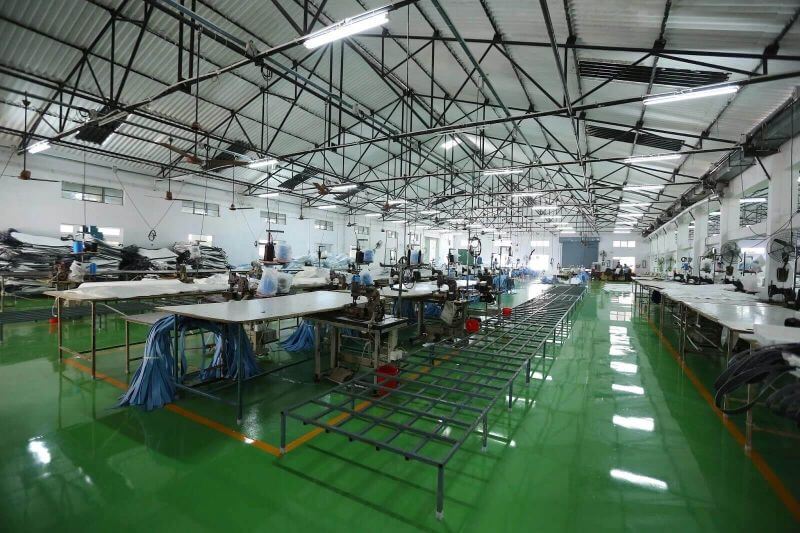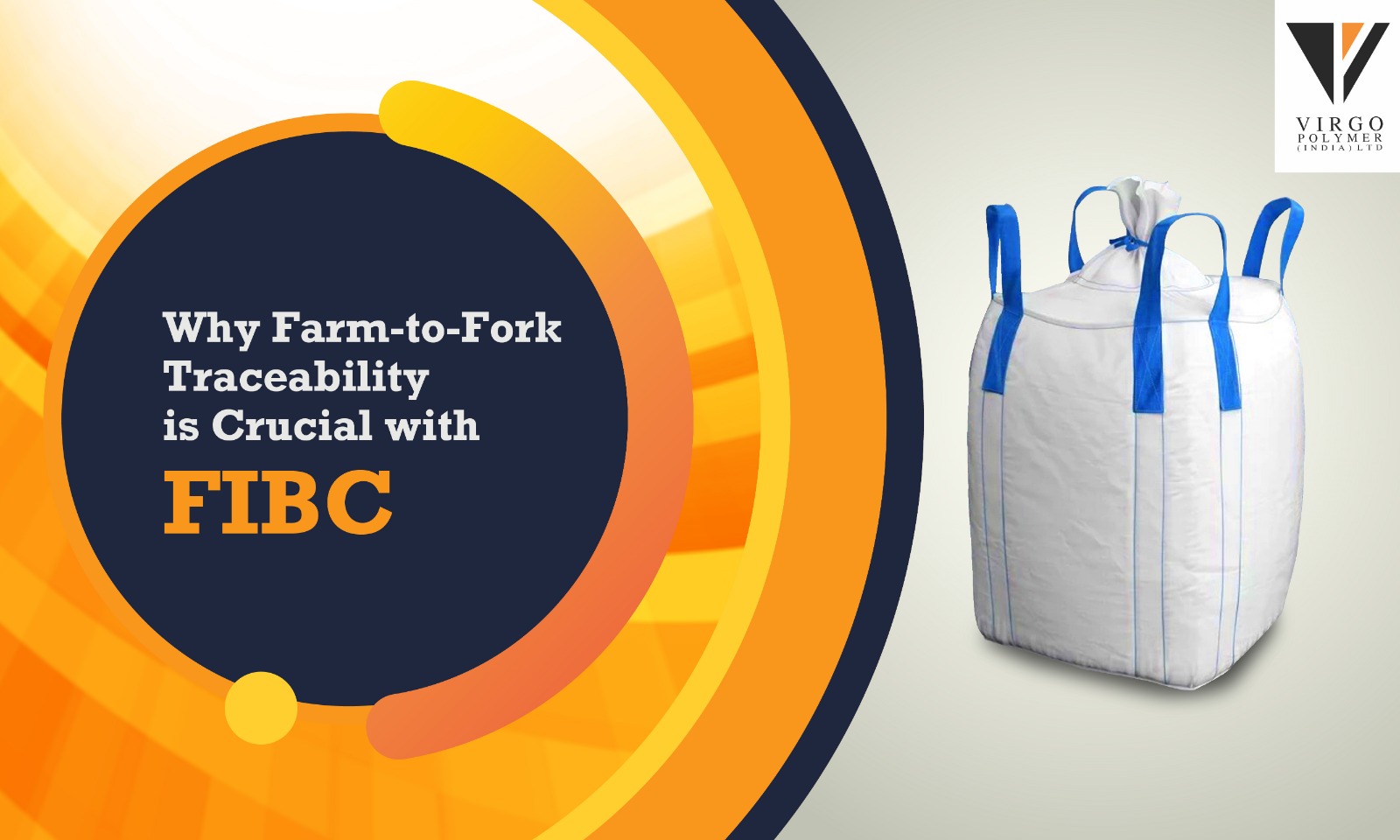



Exploring how FIBC (Flexible Intermediate Bulk Containers) can help ensure traceability and transparency in the supply chain from the farm to the end consumer.
In recent years, there has been a growing demand for transparency and accountability in the food supply chain. Consumers want to know where their food comes from, how it was produced, and whether it meets certain standards for safety and quality. This has led to an increased focus on farm-to-fork traceability, which is the ability to track a food product from its origin on the farm to the point of consumption by the end consumer.
Farm-to-fork traceability is particularly important for products that are transported and stored in bulk, such as grains, flour, and other agricultural products. In these cases, Flexible Intermediate Bulk Containers (FIBC) play a critical role in ensuring traceability and transparency throughout the supply chain.
FIBC bags are large, flexible containers that are used to store and transport bulk products, such as agricultural commodities, chemicals, and construction materials. They are made from a variety of materials, including woven polypropylene, which is a durable and lightweight plastic that can withstand the rigors of transportation and handling.
FIBC bags come in a variety of sizes and configurations, including bulk bags, totes, and super sacks. They can be customized to meet specific requirements for product handling, transportation, and storage, and can be designed to meet food-grade standards. This allows for better visibility and control over the movement of products, from the farm to the final destination, ensuring that they are handled properly and meet quality and safety standards. Other key traceability benefits also include-
Labelling & Tracking: One of the key benefits of FIBC bags is their ability to ensure traceability and transparency in the supply chain. By using FIBC bags that are labeled and tracked throughout the supply chain, it is possible to know exactly where a product came from, how it was handled, and where it is going.
Enable Corrective Action: This is particularly important for products that are subject to regulatory requirements, such as food safety and quality standards. For example, if a food product is found to be contaminated or unsafe, it is important to be able to quickly identify the source of the contamination and take corrective action to prevent further harm.
Facilitating supply chain management: FIBC bags can help to facilitate this process by providing a clear chain of custody for products as they move through the supply chain. This can be accomplished through the use of barcodes, RFID tags, or other tracking technologies that can be scanned and recorded at each stage of the supply chain.
Can help ensure quality and safety: In addition to improving traceability and transparency, FIBC bags can also help to improve product quality and safety. By using food-grade FIBC bags that are designed to meet strict regulatory requirements, it is possible to ensure that products are stored and transported in a manner that minimizes the risk of contamination or other quality issues.
Safe food-grade packaging materials: Food-grade FIBC bags are made from materials that are safe for use with food products and are designed to prevent moisture, pests, and other contaminants from entering the bag. This can help to prevent spoilage and other quality issues and can improve the overall shelf life of products.
Help maintain Regulatory Compliance: By using FIBC bags that meet food-grade standards, it is also possible to comply with regulatory requirements for food safety and quality. This can be particularly important for companies that export products to other countries, where regulatory requirements may be more stringent than those in the home country.
Reduces Waste: FIBC bags can also help to reduce waste and improve sustainability in the supply chain. By using reusable FIBC bags that can be recycled or repurposed, it is possible to reduce the amount of waste generated by the supply chain.
Are more Sustainable: By using reusable FIBC bags, it is possible to reduce the amount of waste generated by the supply chain and improve the overall sustainability of the food and agricultural industries. This can be accomplished through the use of closed-loop supply chains, where FIBC bags are collected and returned to the original source for reuse or recycling. This helps to reduce the environmental impact of the supply chain and can improve the overall sustainability of the food and agricultural industries.
Farm-to-fork traceability is critical for ensuring the safety, quality, and transparency of the food supply chain. FIBC bags play a critical role in facilitating this process by providing a clear chain of custody for products as they move through the supply chain, and by ensuring that products are stored and transported in a manner that minimizes the risk of contamination or other quality issues.
In addition to these benefits, FIBC bags also offer several other advantages. They are cost-effective, lightweight, and easy to handle, making them a popular choice for companies that need to transport and store bulk products. They are also customizable, meaning that they can be designed to meet specific requirements for product handling, transportation, and storage.
As the demand for transparency and accountability in the food supply chain continues to grow, the use of FIBC bags is likely to become even more widespread. With their ability to improve traceability, quality, and sustainability in the supply chain, FIBC bags are a powerful tool for companies that operate in the food and agricultural industries.
At Virgo Polymers, we can help you with the secure, efficient, storage, traceability, and transportation of your company's bulk goods.
Our line of FIBC bags is tailored to meet your company's specific material handling, storage, and transportation requirements, ensuring the safety, better traceability, and integrity of your supply chain operations.
Call +91 90030 48815 to know more or email us at info@virgopolymer.com
